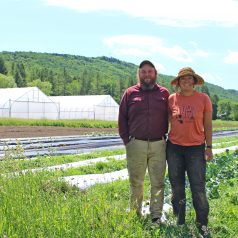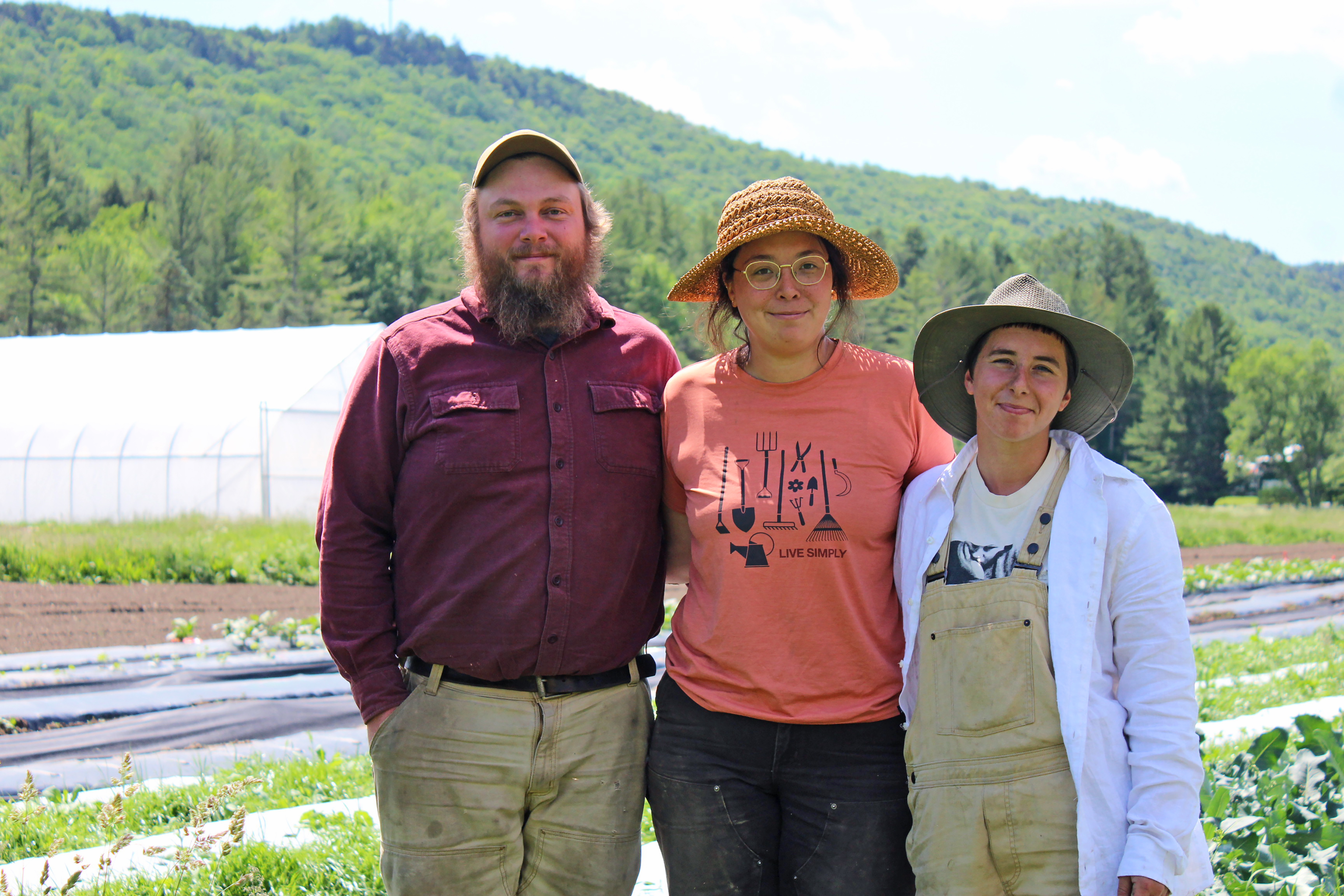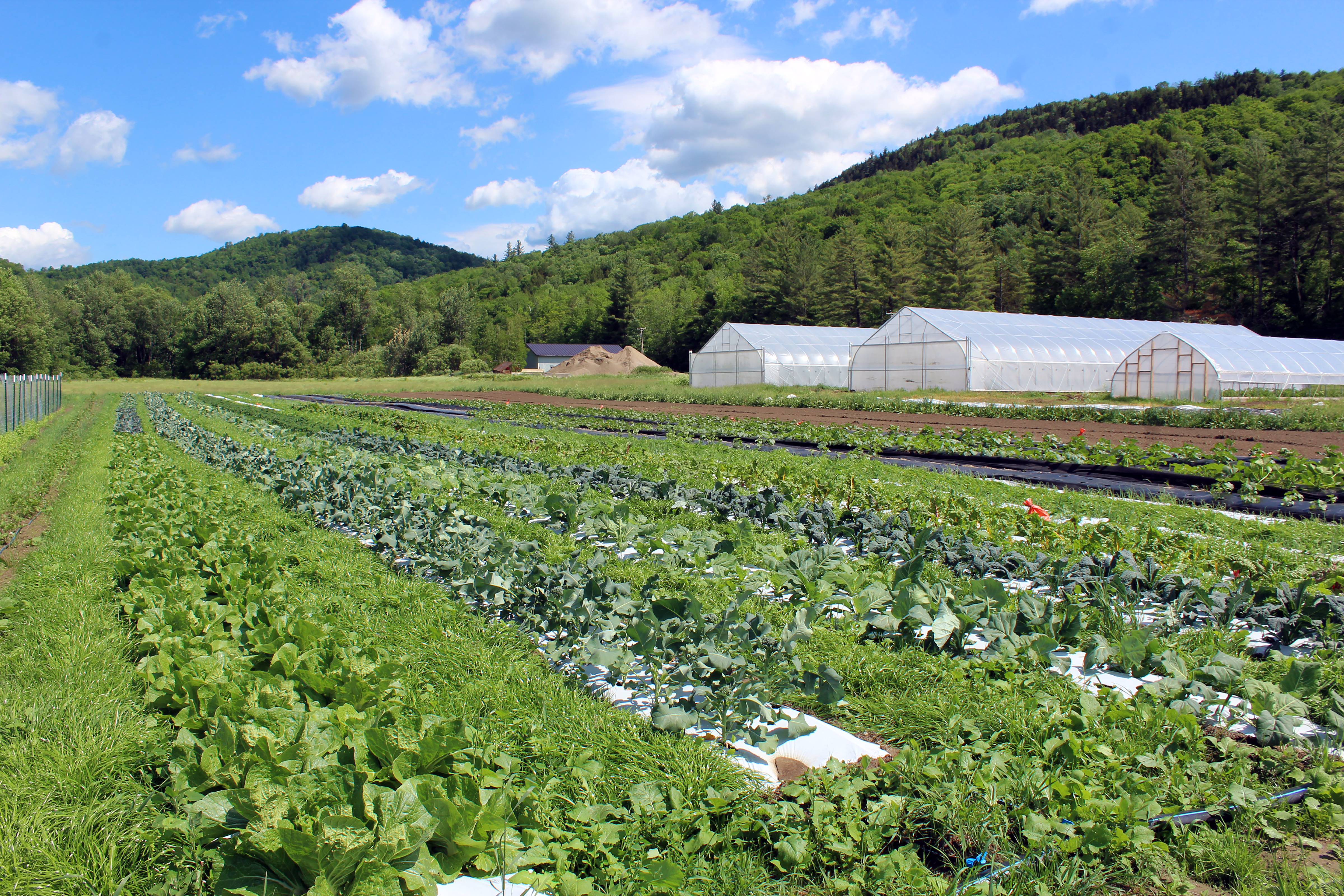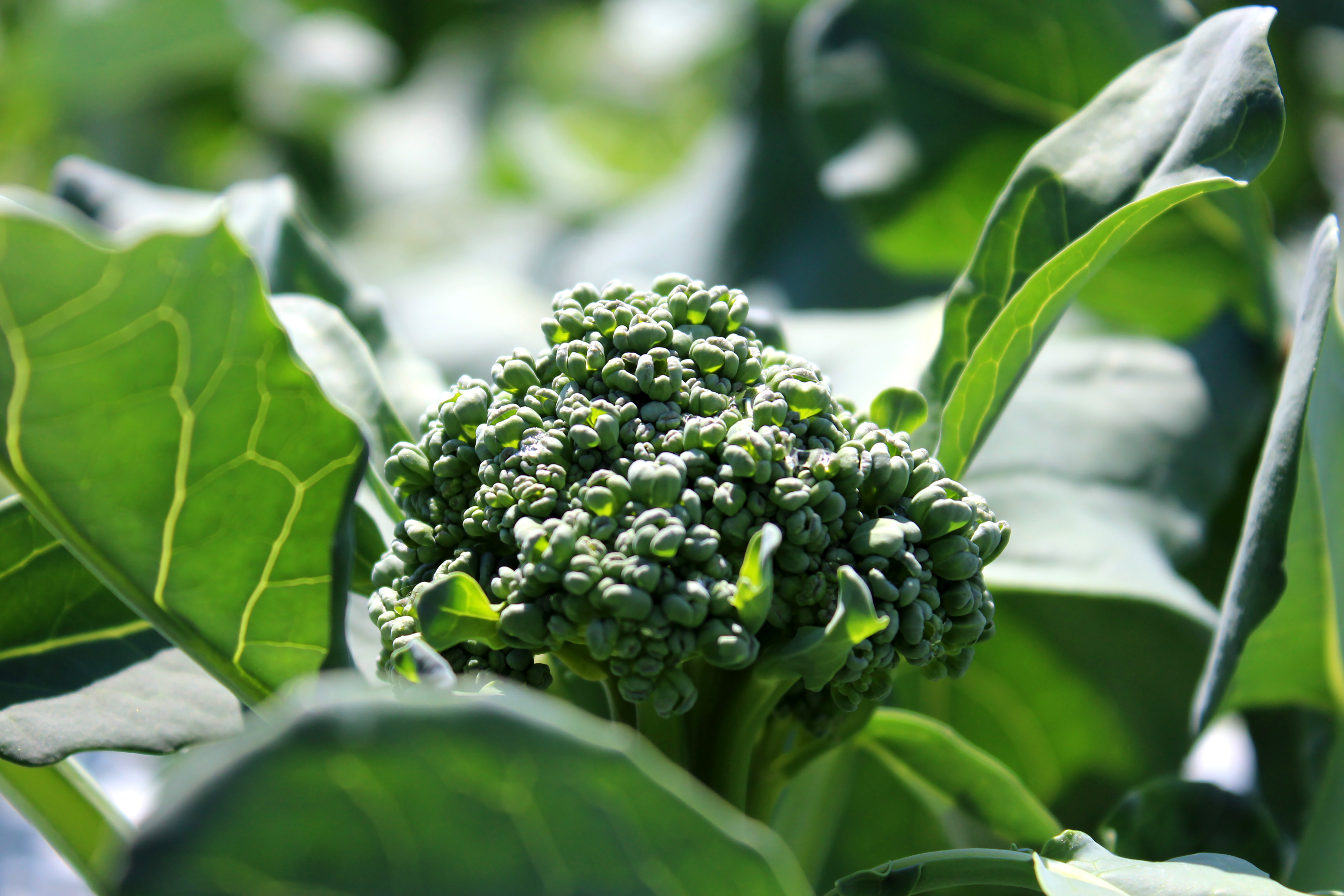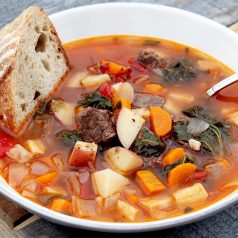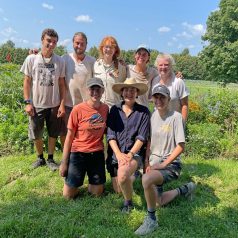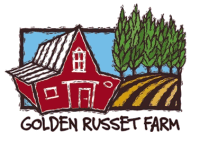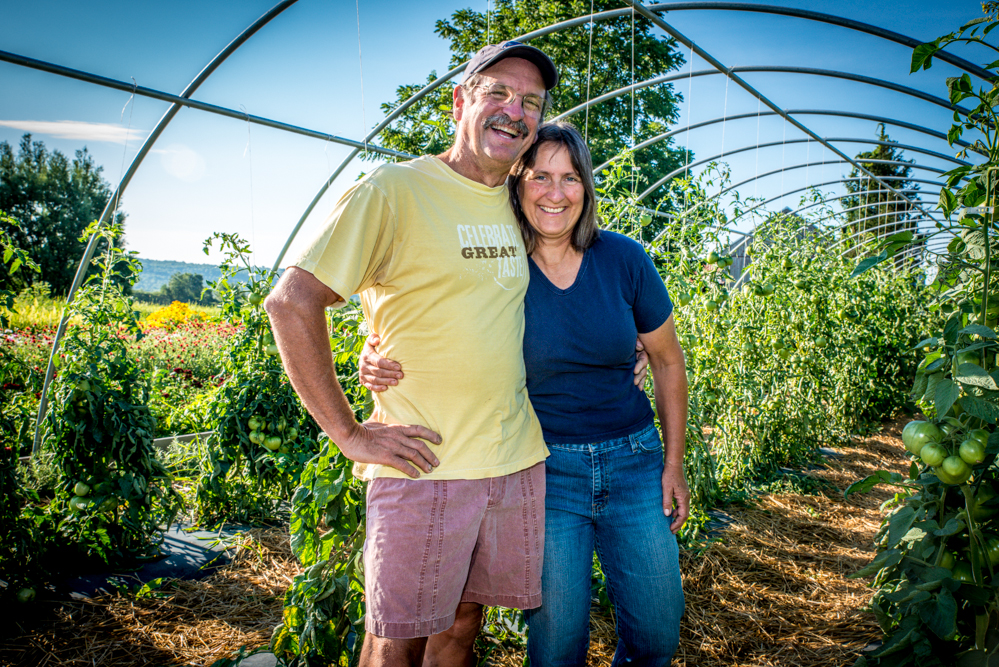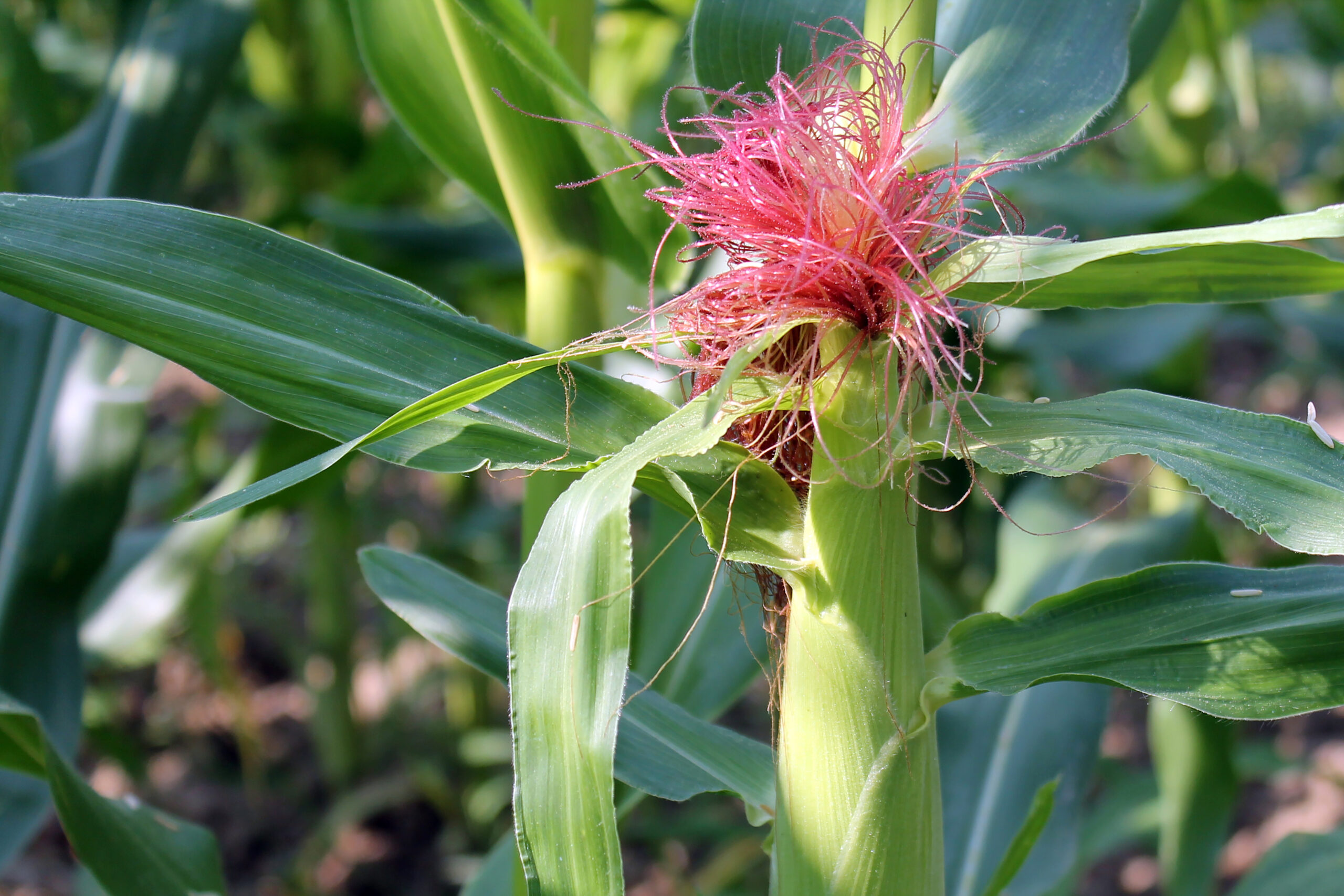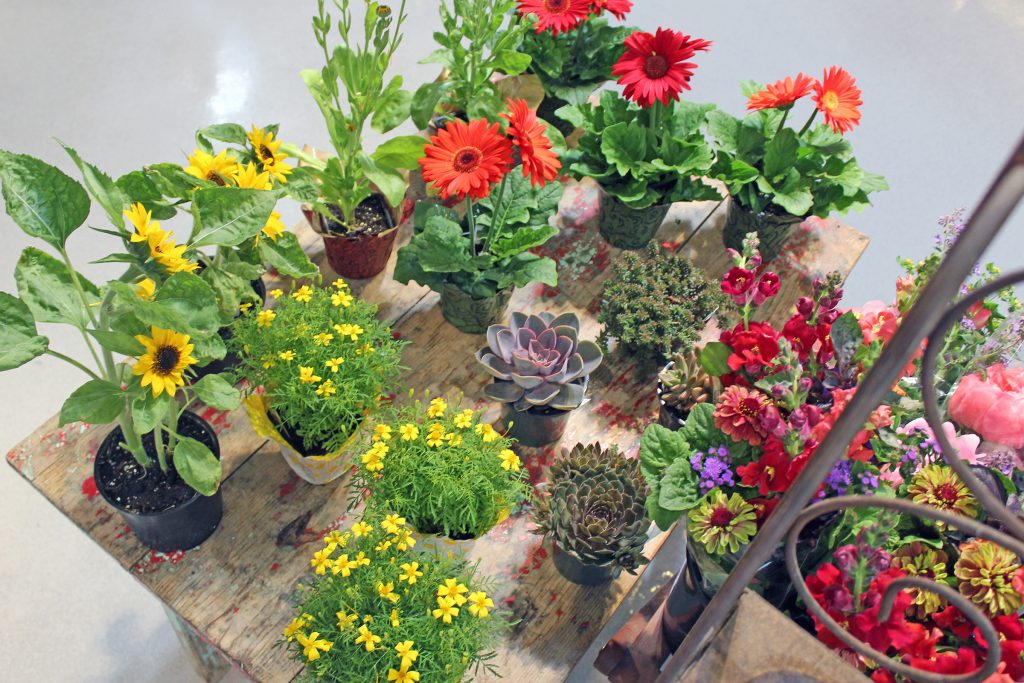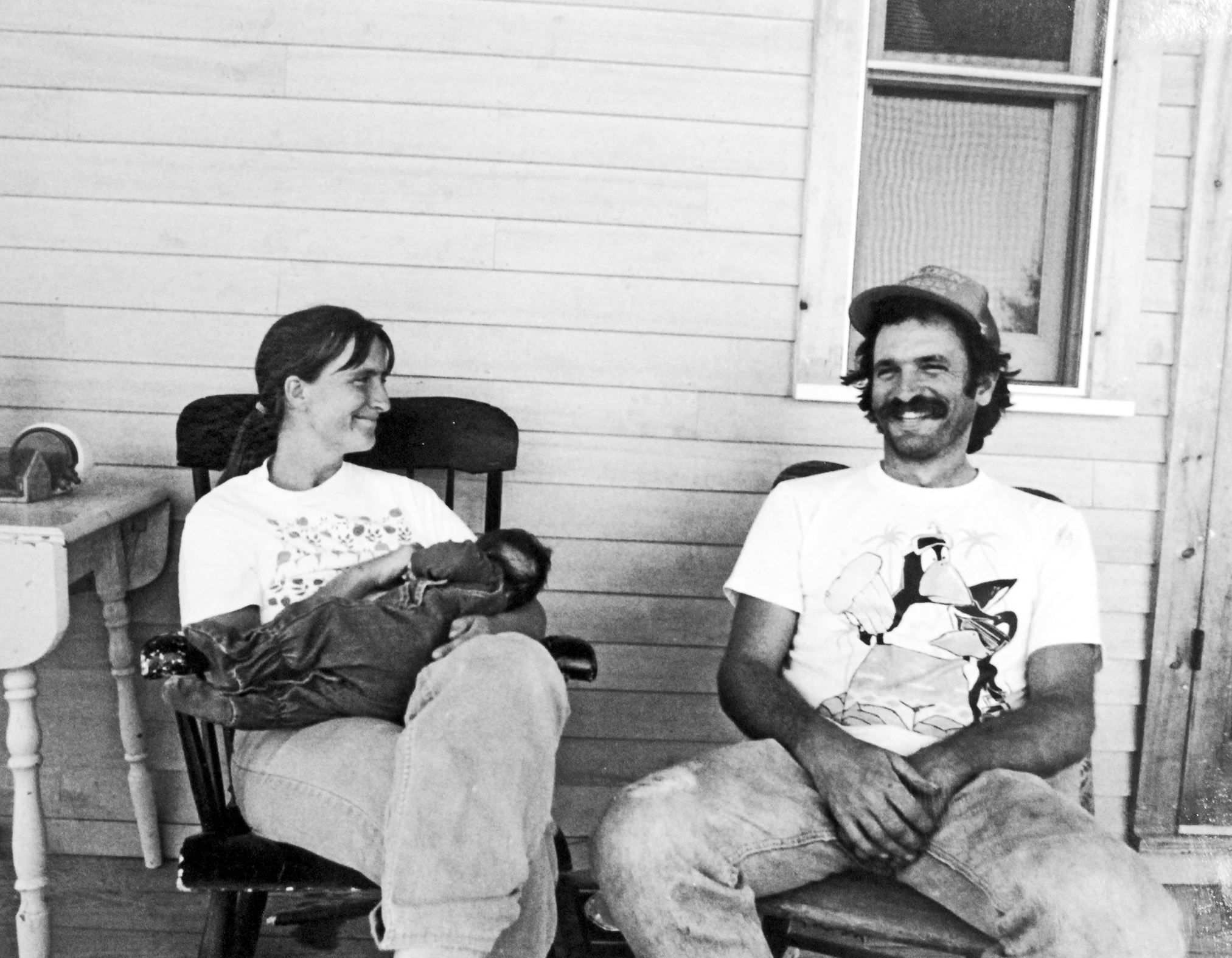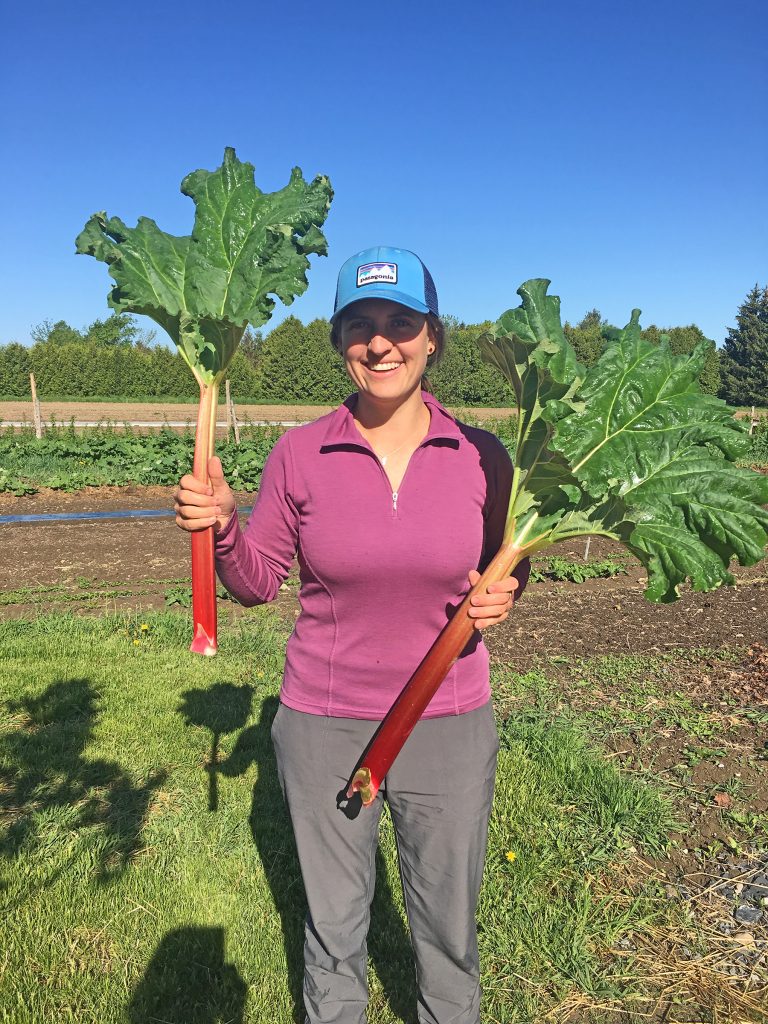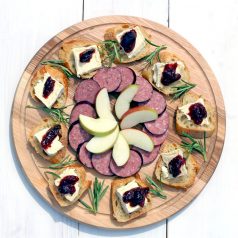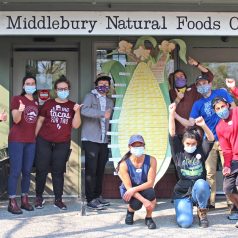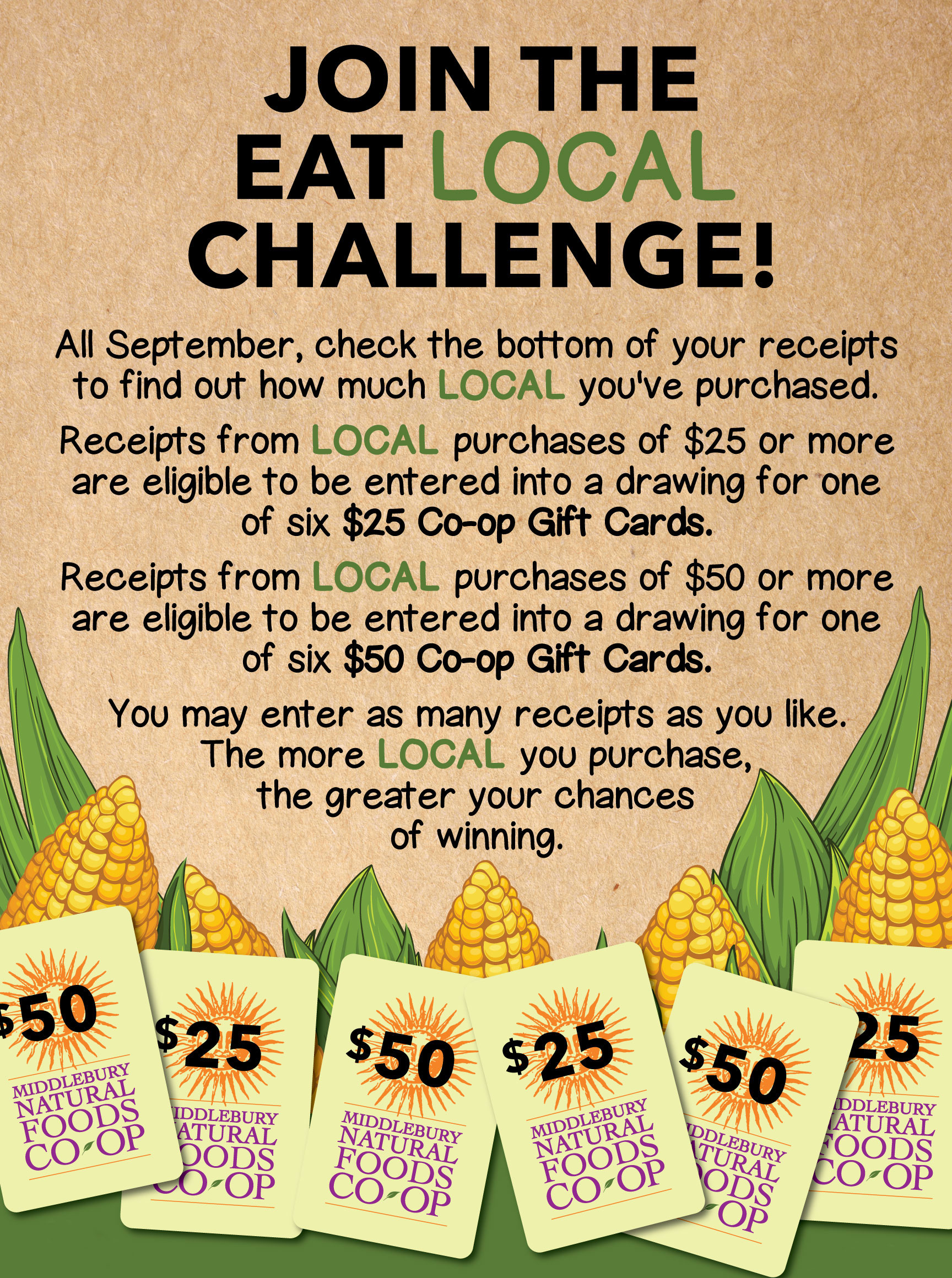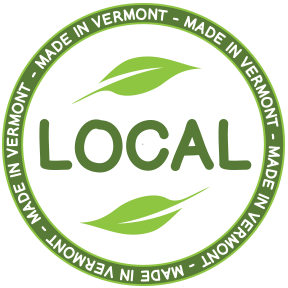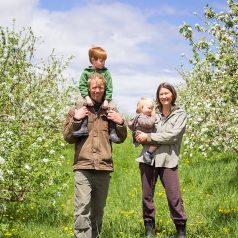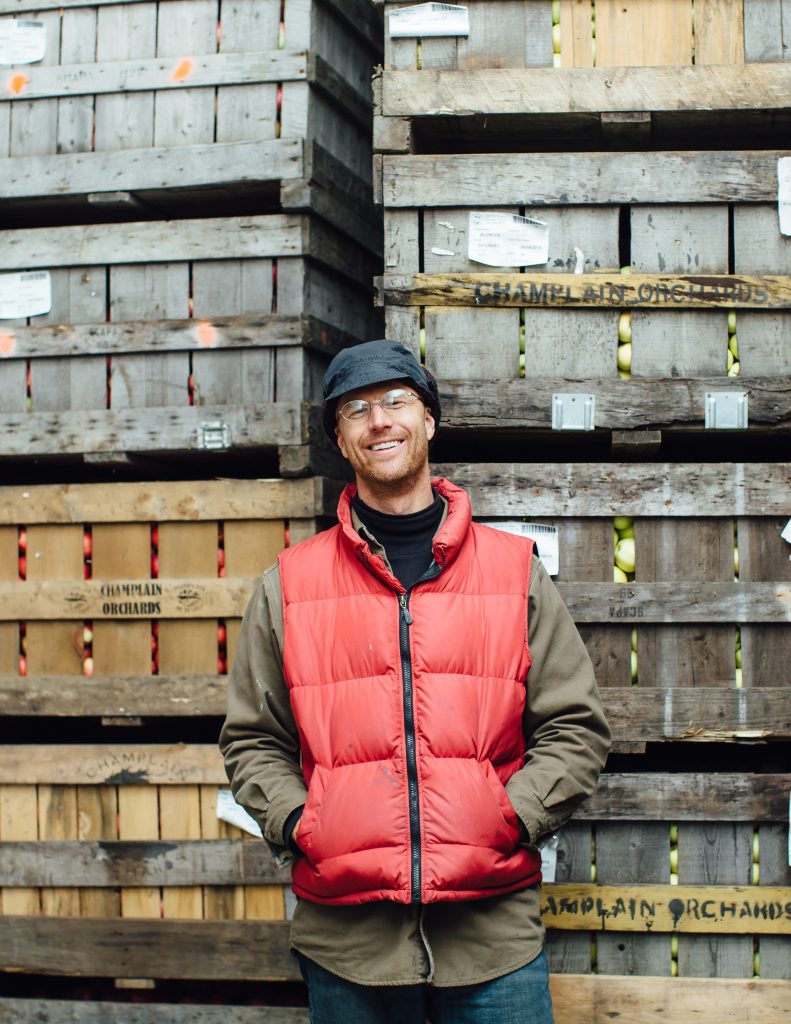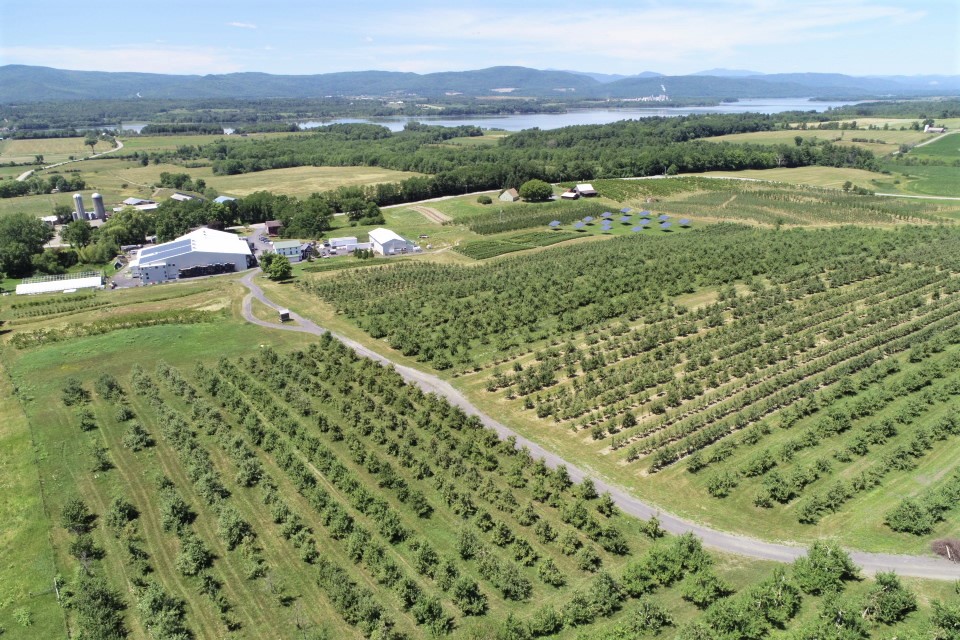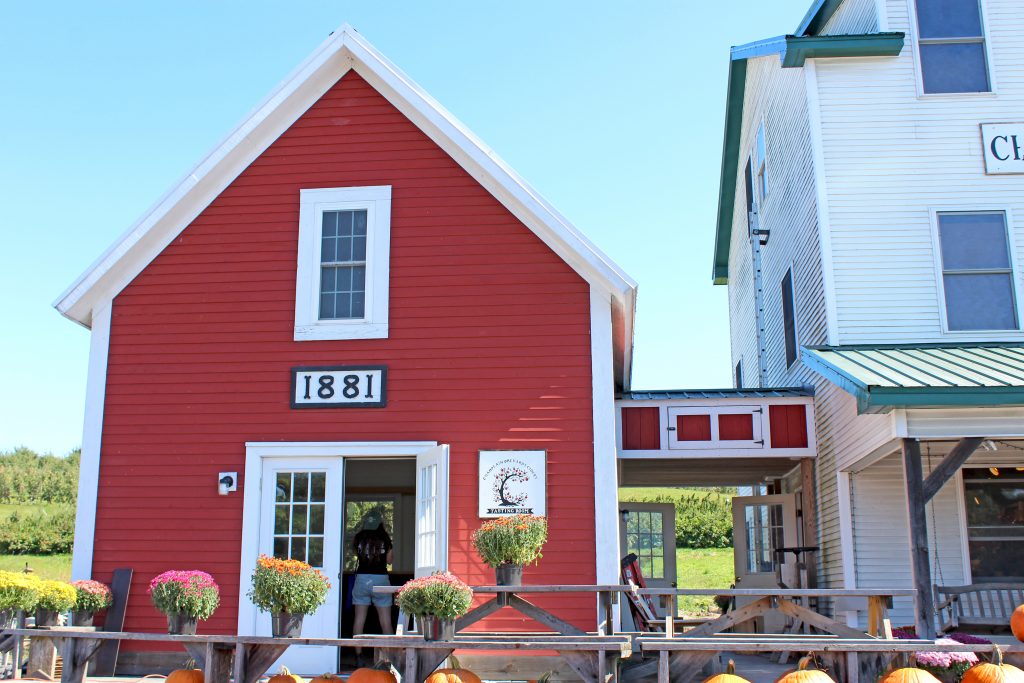
Spotlight on Champlain Orchards
One of the hallmarks of this season in Vermont is the abundance of local apples. With this in mind, we’re casting our Co-op Spotlight on one of the oldest continuously operating orchards in Vermont – Champlain Orchards in Shoreham! They’re featured in our Member Deals Spotlight this week, so member-owners can enjoy 20% off their stunning array of fresh apples and apple products including sweet apple cider, apple pies, and apple cider donuts from September 30th – October 6th! Read on to learn more about this family-owned, solar-powered, ecologically managed orchard overlooking Lake Champlain.
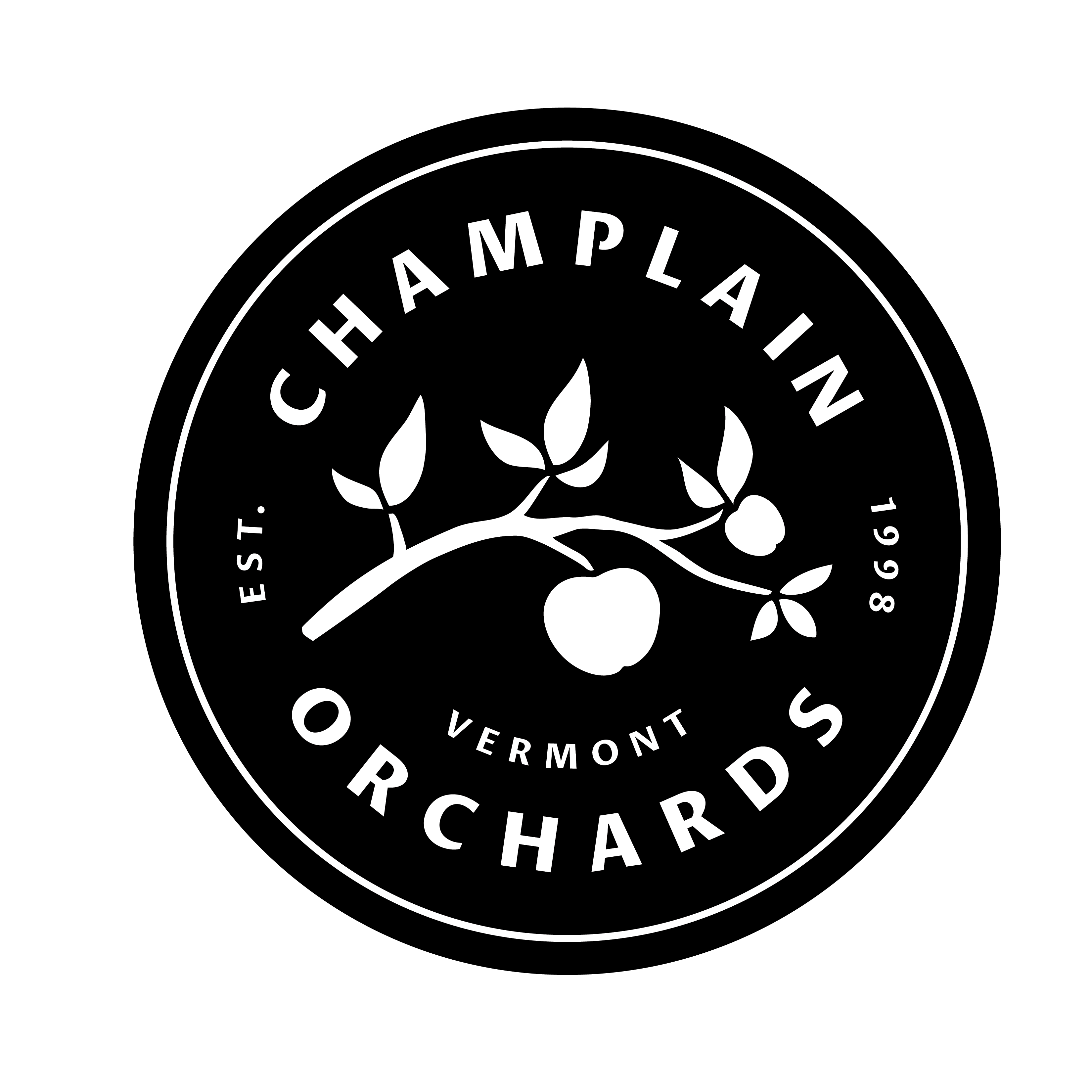
The story of Champlain Orchards as we know it today began in 1998, when twenty-seven-year-old Bill Suhr purchased 60 acres of orchard in Shoreham, Vermont. Bill’s motivation and initiative to live off the land overshadowed the fact that apple growing and fruit farming were not in his realm of knowledge, but thanks to the seasoned expertise of long-established neighboring orchardists Sandy Witherell, Scott and Bob Douglas, and Judy Pomainville – who all shared equipment, land, and information, it wasn’t long before the orchard was thriving. In the early days, Bill delivered 20 bushels at a time in a station wagon to the local farmers’ markets and co-ops. He quickly gained the trust of produce markets around the state through exhibiting a steadfast motivation and passion for delivering high quality, Vermont-grown fruit.
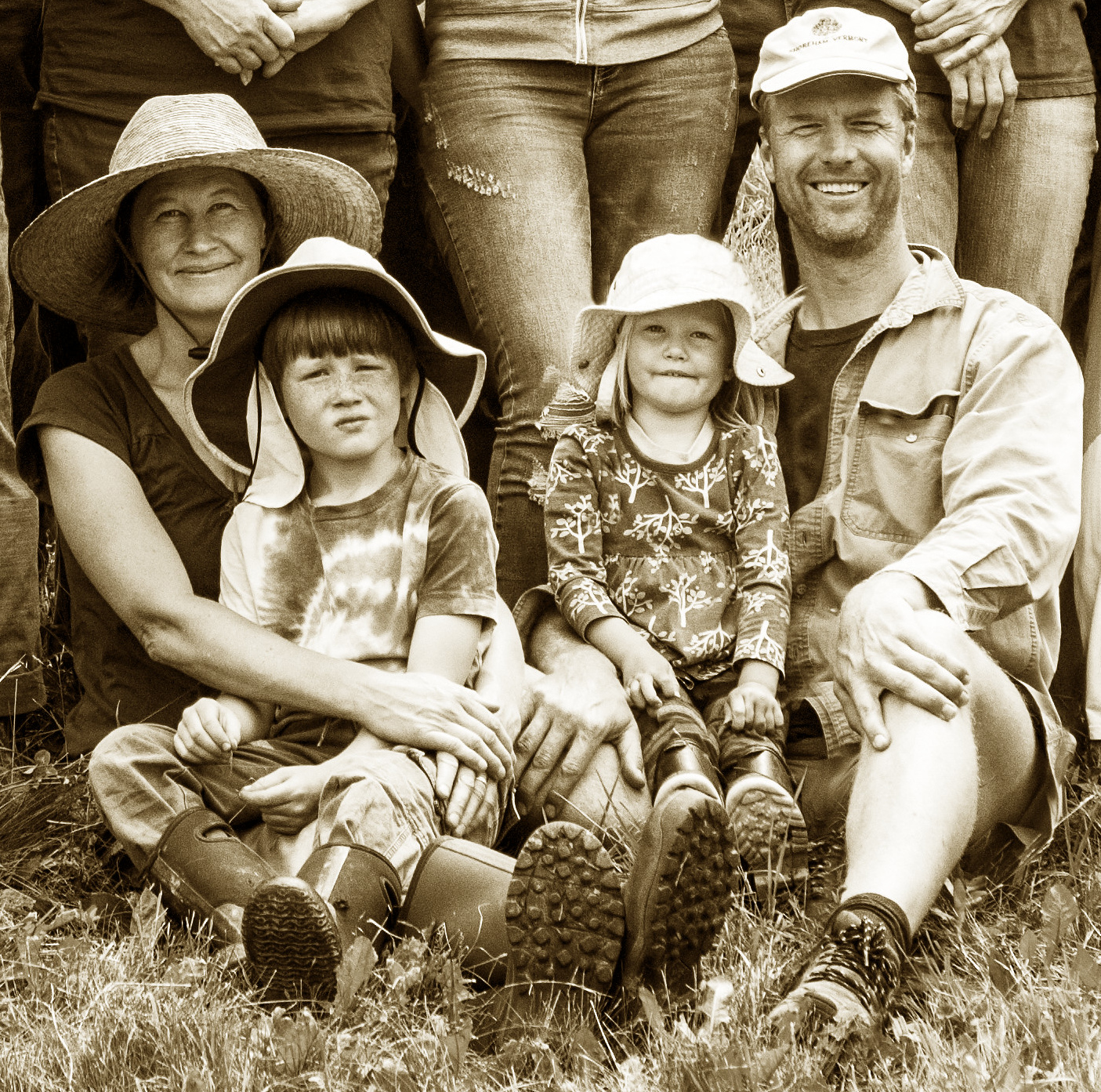
Today, Champlain Orchards manages over 220 acres of fruit trees that includes over 140 varieties of apples as well as peaches, pears, plums, cherries, nectarines, apricots, medlar, quince, and many berries. They are committed to being careful stewards of their land and grow all of their fruit following strict Eco-Apple requirements, while striving to minimize their carbon footprint and sustainably contribute to their community. Eight acres are certified Organic by Vermont Organic Farmers (VOF) and the farm is almost entirely solar-powered. All of their fruit is either ecologically grown and third-party certified by the IPM institute or organically grown and certified by VOF.
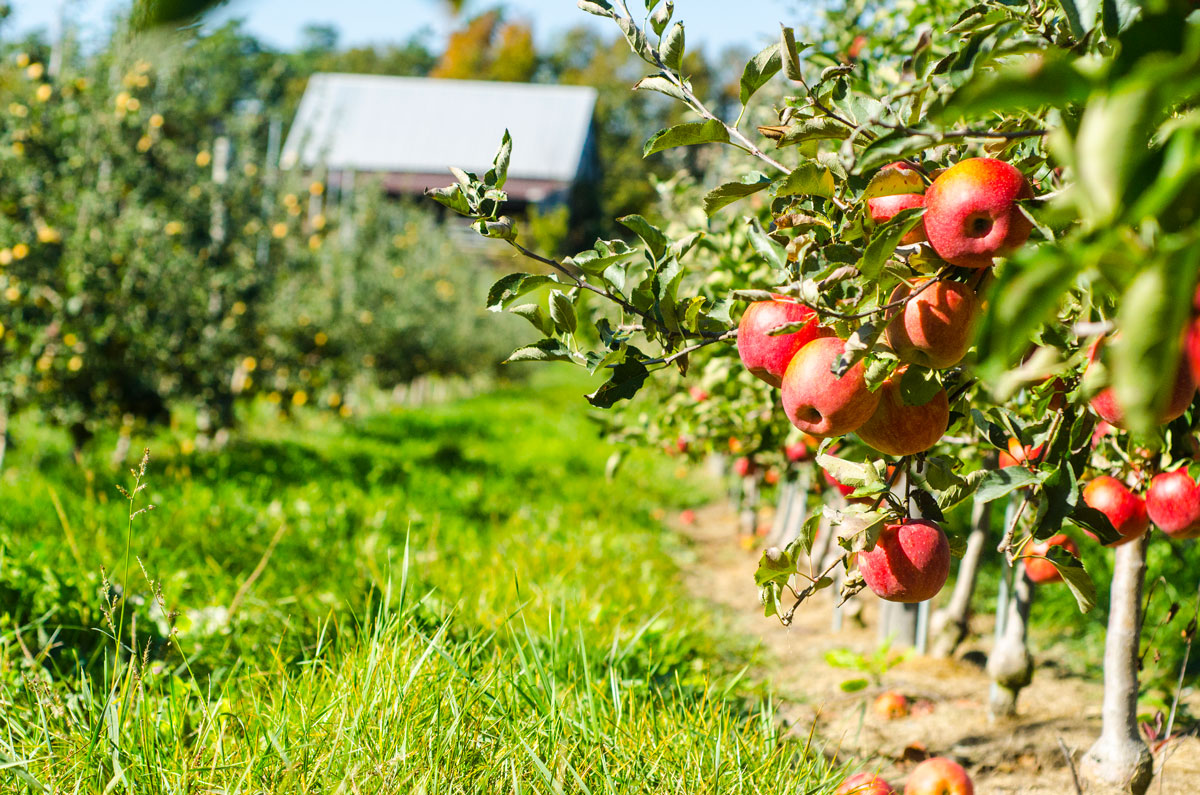
Additionally, Champlain Orchards runs a cidery. Their orchard-made cider is crafted from fruit grown with a conscience, in beautiful and pristine Vermont. Their cidery is located on-site at Champlain Orchards and every single apple in their hard ciders is pressed, fermented, and crafted at their orchard. This makes for a quality, local product that is fresh, crisp, and deliciously drinkable. They average around 50,000 gallons per year, and growing!
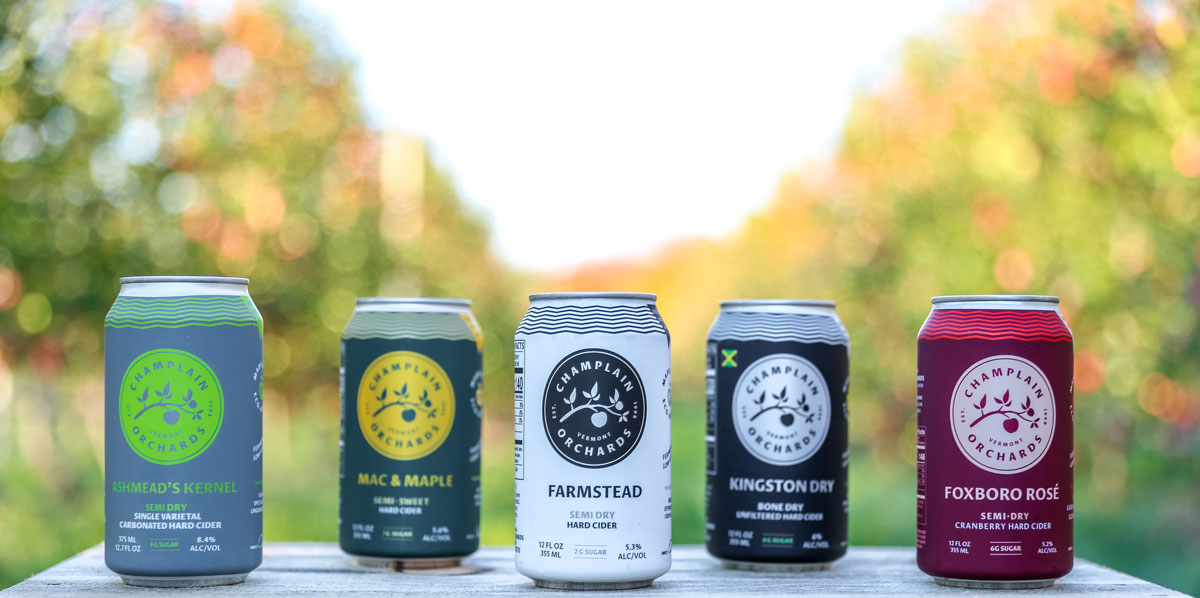
Champlain Orchards is proud to employ over 40 local Vermont residents, year-round. They also welcome an amazing Jamaican crew during their harvest season, many of whom have been coming to Champlain Orchards for over a decade!
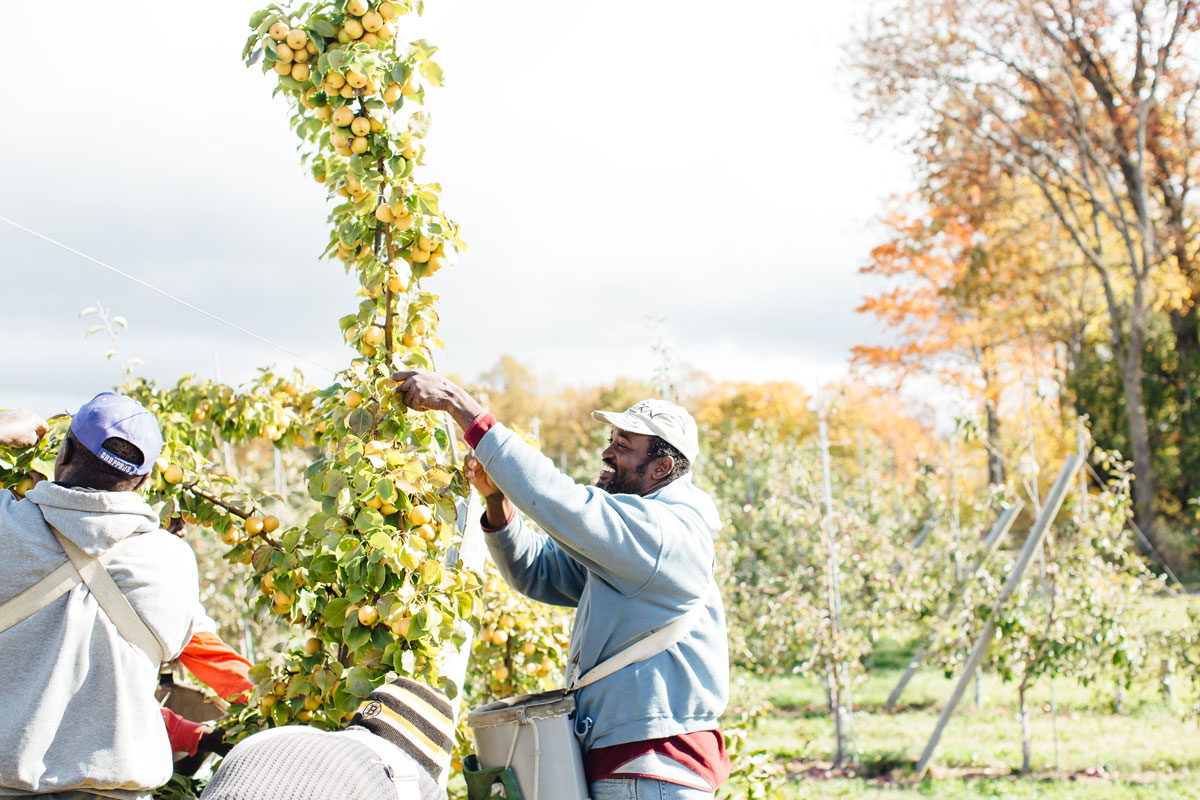
One very exciting addition to the Champlain Orchards family last year was the legendary orchardist Zeke Goodband. Zeke leaves a nearly 20-year tenure at Scott Farm Orchards in Dummerston, Vermont to join the Champlain Orchards crew. According to a Seven Days article heralding this merger of apple mega minds, Zeke is described as a “champion of old and odd varieties of heirloom apples. His fruit has brightened up apple bins in co-ops around the state, and his influence has changed Vermonters’ perception of what an apple can be: golden and purple, as well as red and green; russeted or gnarled skin, as well as smooth.” He arrived at Champlain Orchards with scion wood from about two dozen varieties, which he plans to graft onto rootstock to see how they do in this new environment. Goodband and Suhr describe themselves as old friends and kindred spirits. They both admit to working too much and get excited when the conversation turns to apple genetics. They share the same values of fruit growing: making sure it’s safe for the environment and for their families.
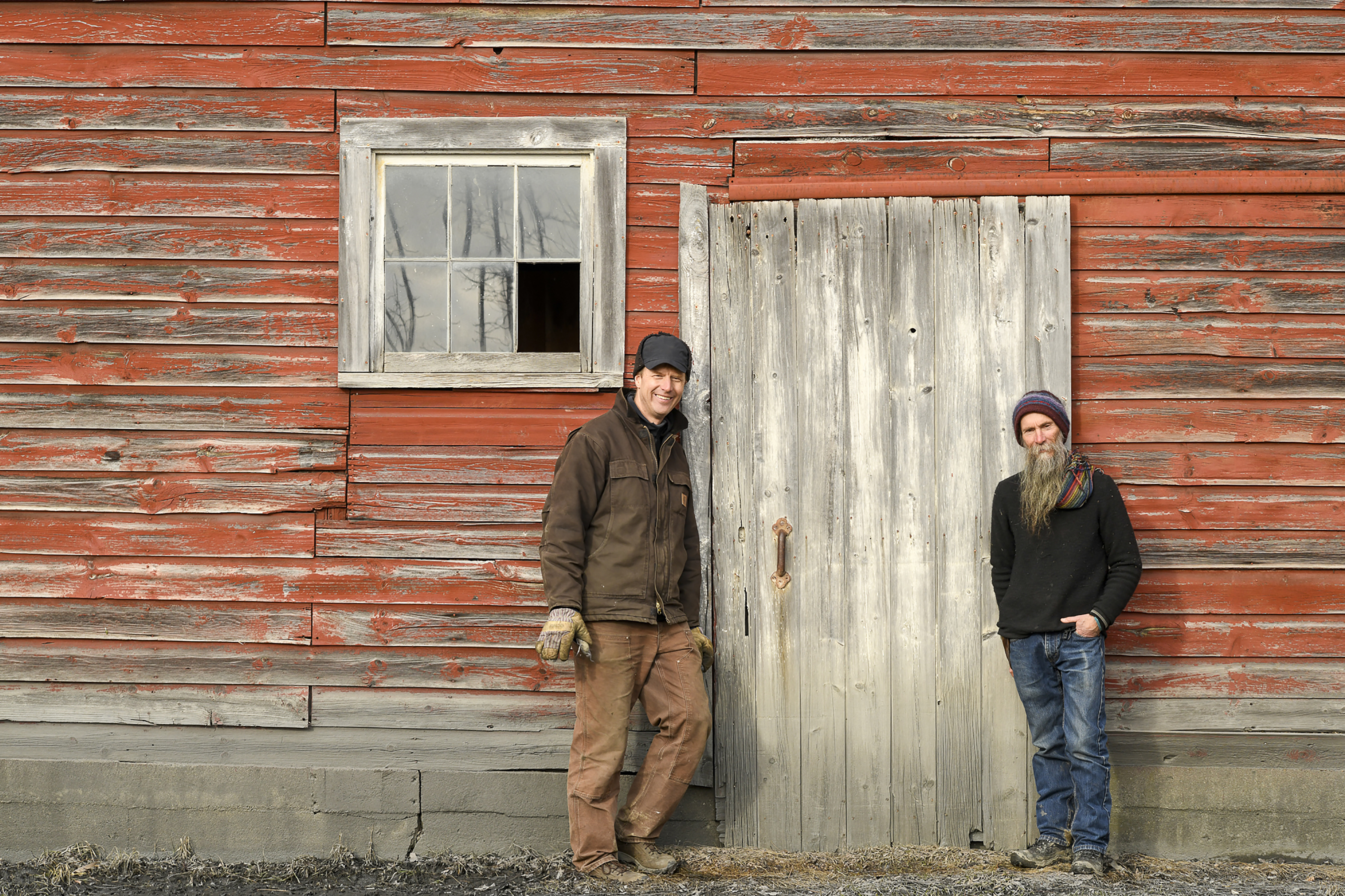
Other newsworthy headlines from the orchard this year included Champlain Orchard’s acquisition of neighboring Douglas Orchard & Cider Mill. This orchard was founded in 1989 and was overseen by four generations of the Douglas family. Scott and Bob Douglas were the fourth and final generation of Douglas’ to operate the farm and before selling the property to Champlain Orchards, they took steps to protect the land from future development by working with the Vermont Land Trust to preserve the Douglas Orchard & Cider Mill’s 181 acres. The conservation easement ensures the land will remain available to future farmers. Here’s what Bill Suhr has to say about the purchase of Douglas Orchard:
“For the past 22 years I have been emulating Bob and Scott Douglas as they care for their family farm and orchards, just down the road from us. After years of discussions and planning, we were able to officially purchase the 180-acre farm, allowing Bob & Terry, and Scott & Sue Douglas to officially begin a well-earned retirement. The Douglas family has been very supportive of Champlain Orchards over the years and I am thrilled to be able to preserve this historic orchard for future generations and continue on their legacy and values.
There are many more stories that Bob and Scott can tell while smiling about the young “flatlander” they have worked with over the years, but let’s switch to discussing how we intend to manage the challenge of running two unique PYO/retail operations. Over the years we have worked hard to not compete with the Douglas family when growing our PYO operation here at Champlain Orchards. We respect that some customers have formed loyalties to each farm, while other folks travel back and forth to experience both. Many companies absorb a competitor and simply overlay their own company traits. However, we see an opportunity to continue to maintain the unique experiences each farm offers, so people can appreciate older trees vs new trellis, traditional apple varieties vs uncommon varieties, etc. While staffing two operations will be challenging, we really like the opportunity for visitors to spread out and enjoy the freedom of both orchards.
There are uncertain times ahead for us all, but thanks to your loyal support we can continue to keep the Vermont apple landscape alive. We look forward to seeing you this summer and fall for a safe, bountiful PYO season, thank you!”

